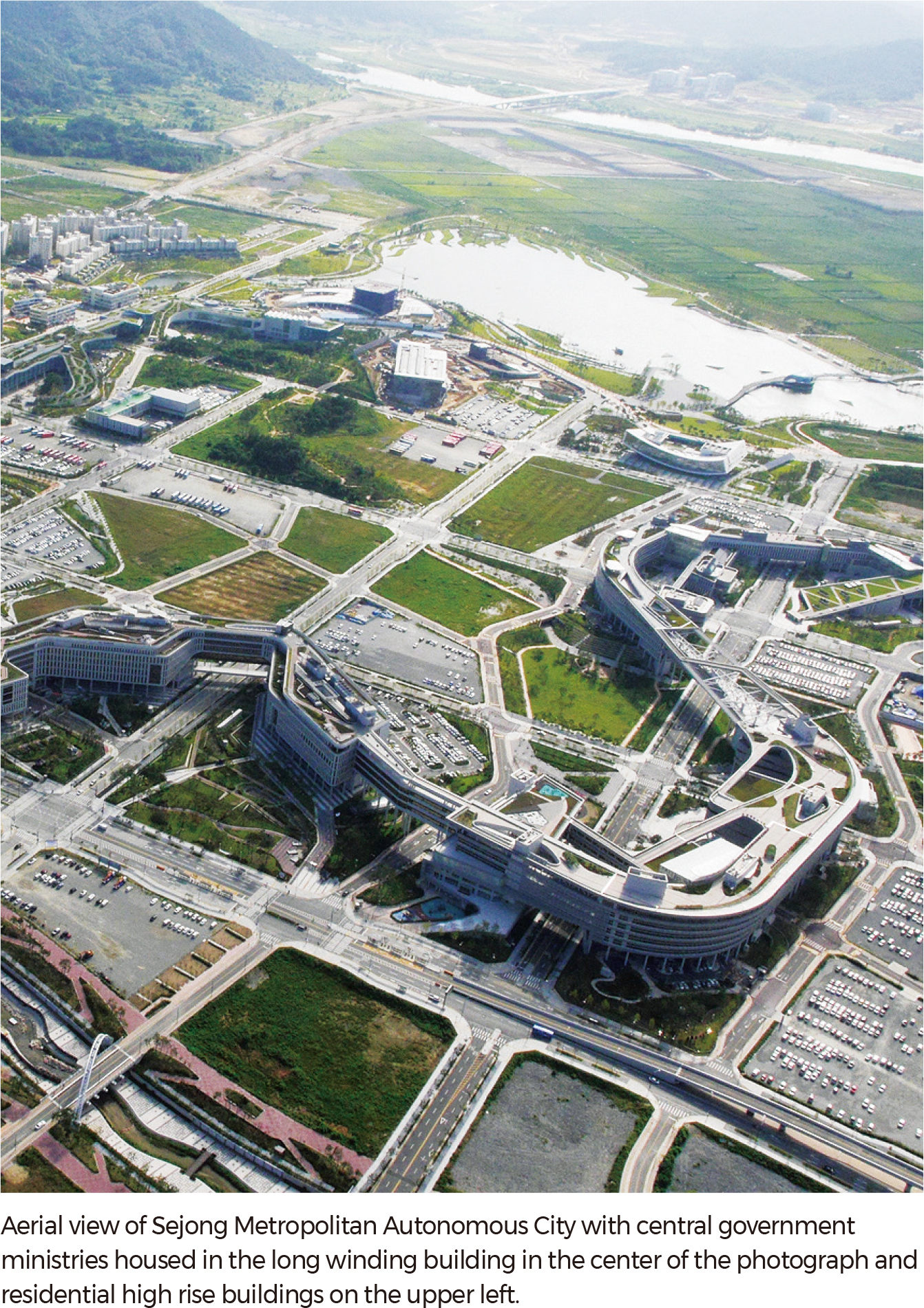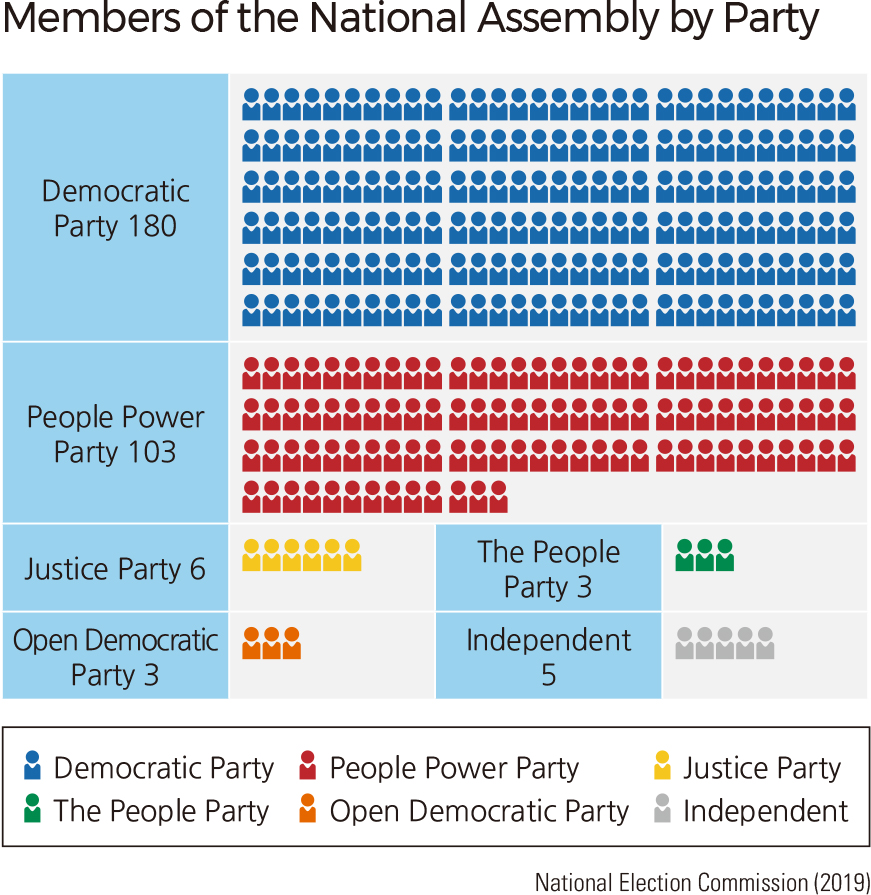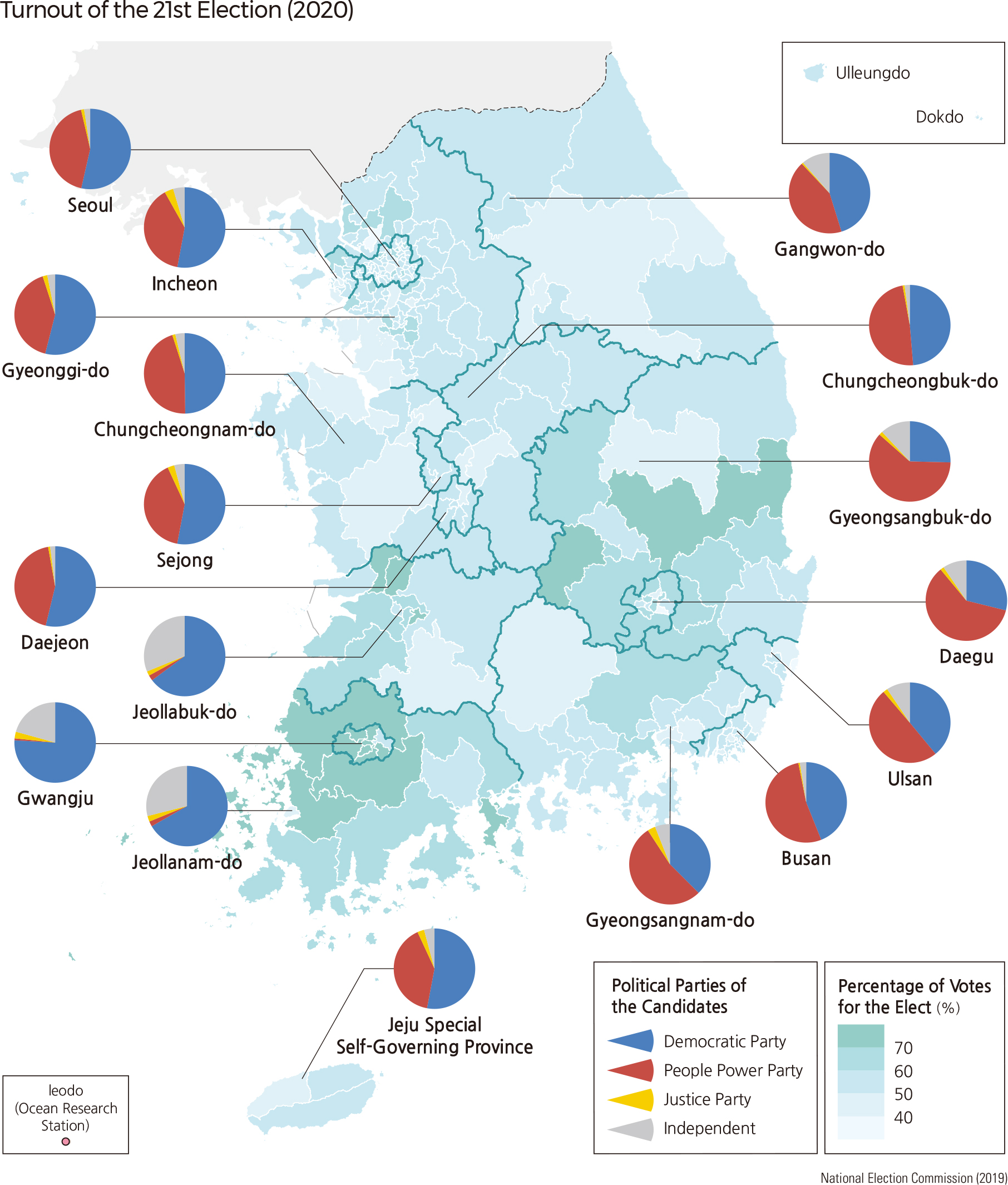Comprehensive Edition 2022
Government of the Republic of Korea
Transforming a nation also means making improvements in the governmental structure. Although the Republic of Korea has gone through six different republics since the Korean War, it is now politically stable. Korea held its first free election in 1987. The current republic is a democracy that has universal suffrage at age 19. The government is divided into three branches: the National Assembly (legislative branch), the Executive Branch, and the Judicial Branch.
The Legislative Branch: The National Assembly
The National Assembly is the legislative body of the Republic of Korea, composed of 300 members elected by the people and, on their behalf, enact laws which are the foundation of state operation. It deliberates and finalizes the budget, and makes policy decisions. With a term of four years, the cycle of the current 21st National Assembly runs from May 30, 2020, to May 29, 2024. The National Assembly is led by one Speaker and two Deputy Speakers, each serving a two-year term. To maintain impartiality during the proceedings, the Speaker is not allowed to affiliate with any political party during his or her term of office. The regular session convenes on the first day of September every year and may not exceed one hundred days. Extraordinary sessions convene on the first day of February, April, and June every year and may not exceed thirty days.
Executive Branch
The Executive Government consists of the President and the executive branch. The president is elected to a five-year term. On May 10, 2022, the 20th President, Yoon Suk-yeol, took office. The eleven executive ministries include: Home Affairs, Foreign Affairs, Justice, National Defense, Finance, Education, Agriculture and Forestry, Commerce and Industry, Transportation, Social Affairs, and Postal Services.
The Judiciary Branch
Courts in Korea are provided with the power to judge all legal disputes unless otherwise provided by the Constitution. The Korean judicial system adopts the basic three-tier system, which is composed of district courts, high courts, and the Supreme Court. Case trials are presided over either by a single judge or a panel of three judges. In general, all hearings and rendering of judgments are open to the public. Adjudication, including hearings and rendering judgment, is presided over by a judge or a panel of judges. Citizen participation in criminal trials has been implemented for certain types of serious criminal cases; when requested by the defendant, citizens directly participate as jurors. |




